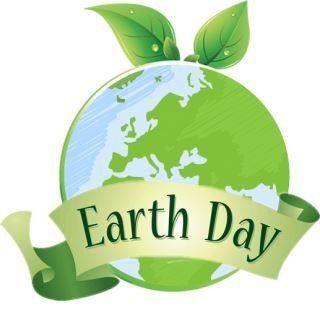

In 1970, Wisconsin politician Gaylord Nelson led the charge in what became Earth Day. After witnessing the horror of a huge oil spill in Santa Barbara, California, at the beginning of 1969, he was extremely frightened.

Senator Nelson combined the student anti-war movement with increasing public awareness of air and water pollution from his concern about the planet's worsening situation. He had proposed teaching about environmental conservation in colleges. Earth Day became a reality in 1970, thanks to the efforts of Nelson and activist Denis Hayes, and received widespread coverage in the national media. After decades, the movement went global in 1990.
EARTHDAY.ORG (EDO), the global organizer of Earth Day and biggest recruiter of environmental movements, announced the theme for 2023 – “Invest in Our Planet.” As a continuation of the well-received campaign from this year, the theme is centred on encouraging governments, institutions, businesses, and more than 1 billion people who participate in Earth Day each year to do their part. Everyone accounted for, and everyone was accountable.
Aluminium is known as a green metal since it is one of the most environmentally friendly metals because of its sustainable nature. Aluminium, the most recyclable industrial material, can be recycled indefinitely to make the same product. Aside from that, recycling aluminium saves 95 per cent of the energy it consumes in production.
Aluminium has emerged as a popular new alternative to steel, particularly in products such as packaging, vehicles, electronics, building components and even jar lids. Aluminium is the most easily recycled material and can be done without losing its strength or quality. As a result, brands are switching from traditional metal packaging to aluminium. According to International Aluminium Institute (IAI), almost 75 per cent of the 1.5 billion tonnes of aluminium ever produced is still in use today.
The advantages of using aluminium go far beyond sustainability for businesses debating the switch. Because recycled aluminium production is far less expensive than steel, producers can buy materials that reduce costs without compromising quality. In terms of corrosion resistance, aluminium outperforms steel.
Every epoch has seen a transformation. Creating a resilient, circular, and adaptable economy with sustainability at its foundation is more critical than ever, as COVID-19 impacts economies and human lives in unexpected ways.
We've been attempting to strike a balance between exploration and development while also ensuring sustainability. However, a circular economy must be realised without jeopardising development. There is a need for an ideal metal that can restore an environmentally friendly future while also serving diverse industrial objectives to keep the wheel of development and sustainability turning. Aluminium is the way to go.
One of the most useful and widely available metals on the earth, aluminium can be recycled and used again countless times. It is the option in its class that is most environmentally friendly. Being the most prevalent metal in the crust of the earth, aluminium has a wide-ranging impact that changes lives every day. Metal has come a long way from being a necessary component of home kitchens to making it easier to produce the structural components of aircraft. Because harmful carbon emissions and greenhouse gases contribute to global warming, it is crucial to limit these emissions. Some strategies include increasing recycling rates and using environmentally friendly metals in products like cars, boats, planes, and trains.



Responses






